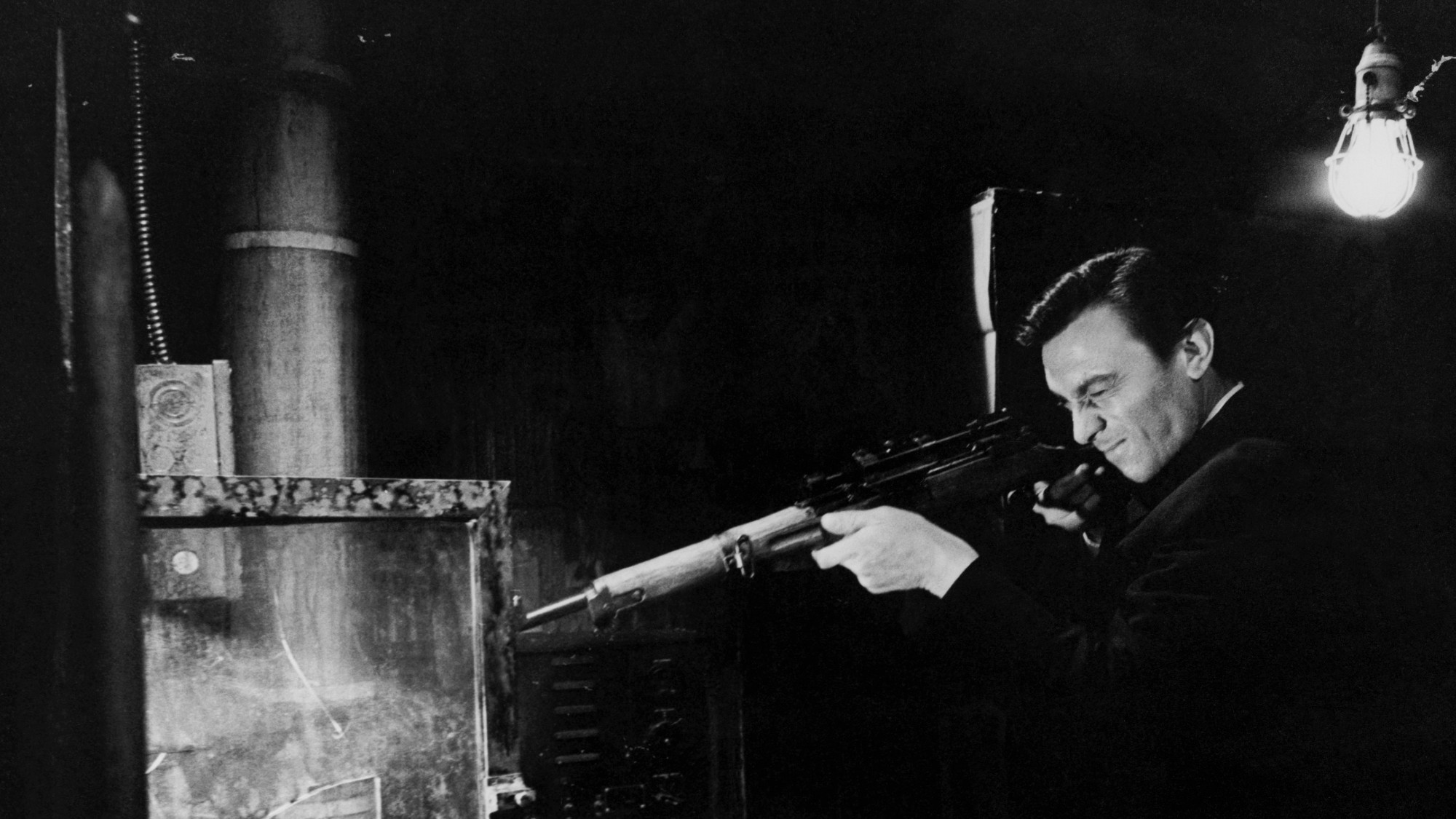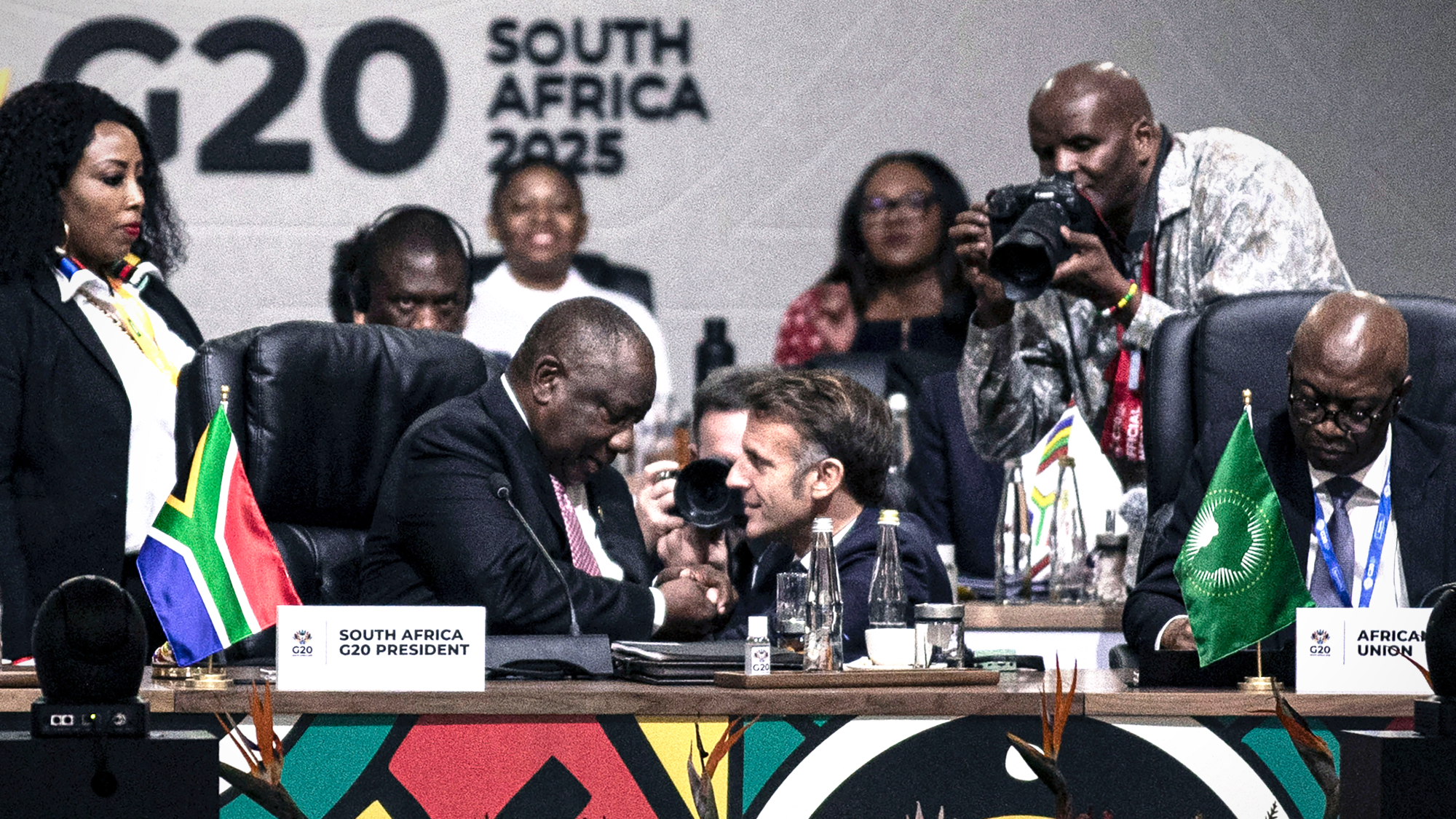Oscar Pistorius out of legal options as request to appeal rejected
Former star athlete loses bid to cut 13-year jail term for murder of Reeva Steenkamp
Four years have passed since Oscar Pistorius shot his girlfriend Reeva Steenkamp in his home in Pretoria, South Africa, starting his descent from sporting hero to murder convict.
The former athlete was the poster boy of the Paralympics. He was born without fibula bones in his lower legs and had them both amputated below the knee before he turned one. However, by the age of 17 he was winning his first Paralympic gold at the 2004 Games in Athens and went on to win five more in Beijing and London.
He made history in 2012 as the first amputee sprinter to compete in the Olympics - but everything changed the following year.
The Week
Escape your echo chamber. Get the facts behind the news, plus analysis from multiple perspectives.

Sign up for The Week's Free Newsletters
From our morning news briefing to a weekly Good News Newsletter, get the best of The Week delivered directly to your inbox.
From our morning news briefing to a weekly Good News Newsletter, get the best of The Week delivered directly to your inbox.
Here's how events unfurled from that date.
14 February 2013: Pistorius is arrested at his home in Pretoria on suspicion of murdering Steenkamp, a 29-year-old model, law graduate and domestic violence campaigner. Early reports relay details of "Oscar's bloody Valentine", during which he fired four shots through his closed bathroom door, killing Steenkamp, who was inside. The athlete claims he mistakenly believed his girlfriend of three months to be an intruder.
15 February 2013: Pistorius bursts into tears at Pretoria Magistrate's Court when the charge of premeditated murder is read out.
19 February 2013: Steenkamp's friends and family gather for her funeral in Port Elizabeth. Her brother Adam, delivering the eulogy, tells the congregation: "There's a space missing inside all of the people that she knew that can't be filled again."
A free daily email with the biggest news stories of the day – and the best features from TheWeek.com
22 February 2013: Pistorius is granted bail of one million rand (£58,700) under conditions that he surrenders his passport and any weapons. The travel restrictions are later eased, allowing him to compete outside South Africa, although he never does.
3 March 2014: The trial begins and swiftly becomes one of the most sensational of the 21st century. Prosecutor Gerrie "Bulldog" Nel and defence lawyer Barry Roux grill witnesses and spar in front of Judge Thokozile Masipa.
Witnesses include neighbours who heard the sound of gunshots, as well as police, forensics experts, psychiatrists and one of Pistorius's ex-girlfriends.
The Paralympian cries and retches into a bucket during his own testimony. He also, at one point, removes his prosthetic legs as the defence attempts to show how vulnerable he felt when he reached for his gun.
Steenkamp's father Barry gives an emotional testimony, telling the court he has forgiven his daughter's killer but wants him to "pay" for what he had done. "What happened devastated us. I wouldn't wish that on anybody in the world," he says.
12 September 2014: Judge Masipa finds Pistorius not guilty of murder, but convicts him of the lesser charge of culpable homicide, similar to manslaughter under UK law, saying he had acted "negligently" in firing the shots but had believed "that there was an intruder".
21 October 2014: Sentenced to five years in prison, as well as a three-year suspended sentence for a separate firearms charge, Pistorius is taken to Kgosi Mampuru II prison in Pretoria. Prosecutors later announce they will appeal the verdict.
19 October 2015: A little less than 12 months into his five-year sentence, Pistorius is released on parole and confined to his uncle's home in Pretoria under house arrest.
3 November 2015: Prosecutors tell the Supreme Court of Appeal that Pistorius should be charged with murder, which carries a mandatory prison sentence of at least 15 years.
3 December 2015: Pistorius's original conviction is overturned and he is found guilty of murder. The five-judge panel says at the appeal court say Masipa made "fundamental errors" in her application of the law and Pistorius "must have foreseen the potentially fatal consequences of his actions", even if he thought Steenkamp was an intruder.
6 July 2016: Masipa sentences Pistorius to six years imprisonment, saying there were "substantial and compelling circumstances" to reduce the usual 15-year minimum term for murder. She adds that the court has a duty to correct the continuing misconception that he intentionally killed Steenkamp. The athlete returns to jail.
-
 The 8 best spy movies of all time
The 8 best spy movies of all timethe week recommends Excellence in espionage didn’t begin — or end — with the Cold War
-
 Why scientists want to create self-fertilizing crops
Why scientists want to create self-fertilizing cropsUnder the radar Nutrients without the negatives
-
 Are pesticides making florists sick?
Are pesticides making florists sick?Under the Radar Shop-bought bouquets hide a cocktail of chemicals
-
 Why Greenland’s natural resources are nearly impossible to mine
Why Greenland’s natural resources are nearly impossible to mineThe Explainer The country’s natural landscape makes the task extremely difficult
-
 Iran cuts internet as protests escalate
Iran cuts internet as protests escalateSpeed Reada Government buildings across the country have been set on fire
-
 US nabs ‘shadow’ tanker claimed by Russia
US nabs ‘shadow’ tanker claimed by RussiaSpeed Read The ship was one of two vessels seized by the US military
-
 How Bulgaria’s government fell amid mass protests
How Bulgaria’s government fell amid mass protestsThe Explainer The country’s prime minister resigned as part of the fallout
-
 Femicide: Italy’s newest crime
Femicide: Italy’s newest crimeThe Explainer Landmark law to criminalise murder of a woman as an ‘act of hatred’ or ‘subjugation’ but critics say Italy is still deeply patriarchal
-
 Brazil’s Bolsonaro behind bars after appeals run out
Brazil’s Bolsonaro behind bars after appeals run outSpeed Read He will serve 27 years in prison
-
 South Africa wraps up G20 summit boycotted by US
South Africa wraps up G20 summit boycotted by USSpeed Read Trump has been sparring with South Africa in recent months
-
 Americans traveling abroad face renewed criticism in the Trump era
Americans traveling abroad face renewed criticism in the Trump eraThe Explainer Some of Trump’s behavior has Americans being questioned